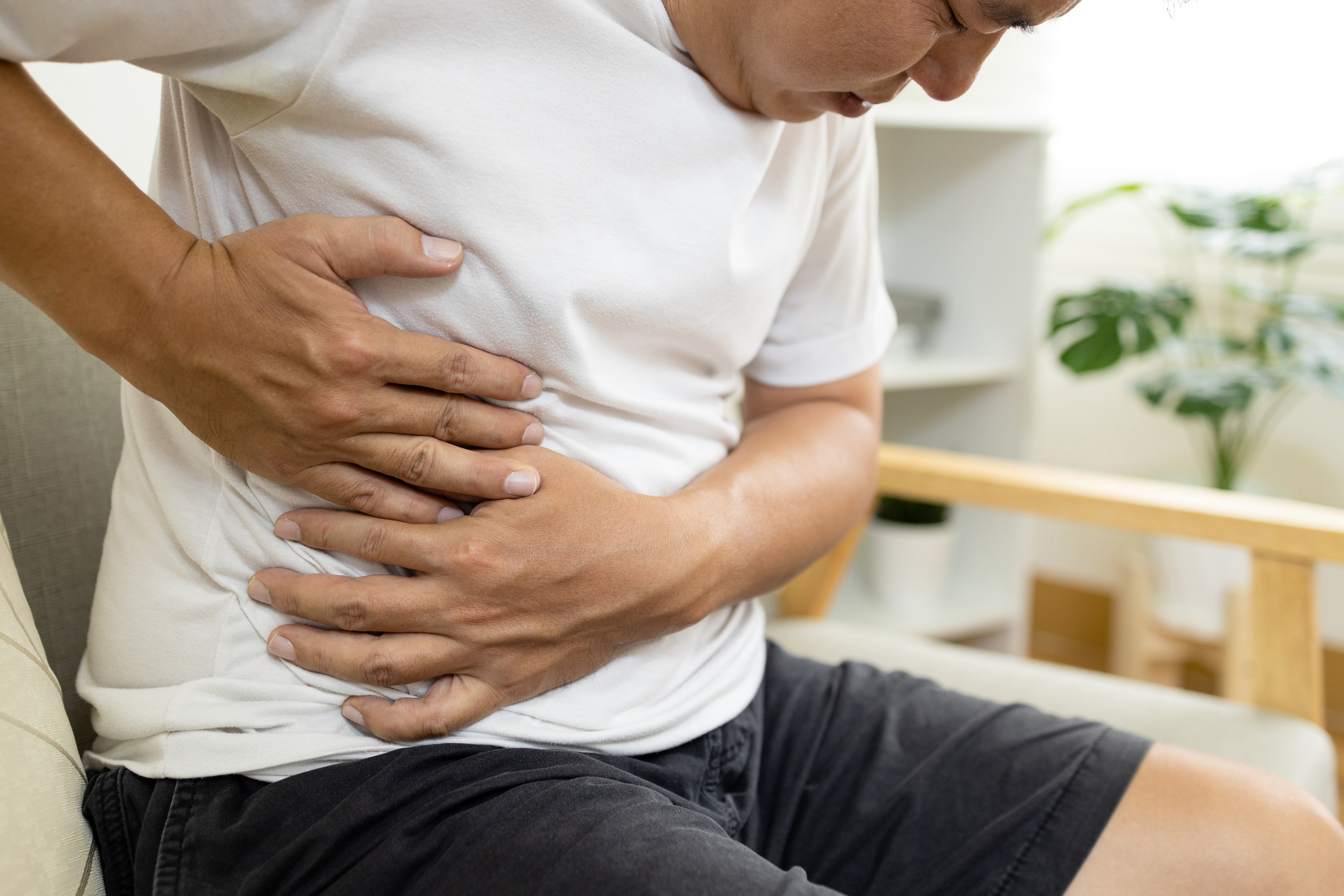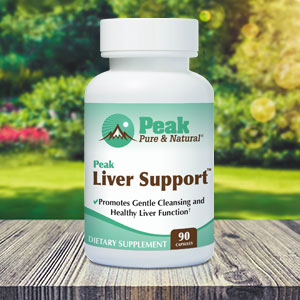Get Easy Health Digest™ in your inbox and don’t miss a thing when you subscribe today. Plus, get the free bonus report, Mother Nature’s Tips, Tricks and Remedies for Cholesterol, Blood Pressure & Blood Sugar as my way of saying welcome to the community!
Why the liver makes it hard to lose body fat

Over the winter I had gotten extremely busy with the holidays and work (hadn’t we all…) and it was simply easier to pick up dinner than cook a healthy meal at home.
And, unfortunately, you could see it around my hips, thighs and waist. Who am I kidding? You could see it everywhere!
I was bound and determined not to spend the entire summer uncomfortable in my own skin. So I resolved to do something…
But, I didn’t go on a diet or head to the gym.
No… My first step was to detox my liver.
Why?
Your liver is nature’s perfect detoxifier when it’s working on all cylinders. But if you find that you’re having a really hard time losing weight, look at your liver before tackling the fat…
Your body’s toxic storehouse
Your liver is the main organ responsible for getting rid of all of the toxins that accumulate in your body each day from the food you eat and from the environment.
But, if it can’t keep up — if it’s overworked or beaten down by things like alcohol, junk food and other pollutants — it can’t flush out the toxins so instead it stores them.
Where? In your fat!
Chemicals such as pesticides, industrial compounds, cosmetic ingredients, medications and even synthetic hormone medications become absorbed into your body and if they don’t get sufficiently detoxified and eliminated via your urine or stool, then they will be stored in your fat for years. Obesogens, the worst offenders, are chemicals that disrupt the function of hormonal systems and lead straight to weight gain.
So, that spare tire around your middle or that cellulite around your thighs you can’t get rid of can really just be a sign that your liver isn’t working as well as it’s supposed to.
In fact, it’s so important to weight loss that Ann Louise Gittleman, Ph.D., author of the bestselling book The Fat Flush Plan said, “Not only is the liver the main organ for detoxifying pollutants and chemicals in the body, but this vital organ also is a hidden key to effortless weight loss.”
So, how can you improve your liver function to boost weight loss?
The answer is through a simple detox.
Step #1 – Eliminate toxins
The first step in liver detox is to eliminate toxins from your diet. The best way to do that is to follow a whole foods diet. If it comes in a box, that’s a big clue it contains preservatives, stabilizers and other additives that can be hard for your body to process. Also avoid foods that come in plastic containers, plastic wrap or styrofoam, like takeout.
Plastic pollutants, as microplastics, build up and change fat cells, making them harder to lose.
But don’t forget about toxins from outside sources either… like pesticides, industrial compounds, cosmetic and personal care product ingredients, and medications. Steer clear of these by choosing chemical-free, natural products.
The reason for this step is that you have to stop putting toxins in to allow your liver to recover.
Step #2 – Think veggies
The next step is all about the veggies in the form of fresh raw veggie juices and soups. You want to get at least four to five servings of vegetables each day.
Great veggies to use include Brussel sprouts, broccoli, kale, cauliflower, cabbage and carrots.
Just make sure to choose organic vegetables to avoid those dreaded toxins.
Step #3 – Supplement
Certain supplements are vital to help with the liver detoxification process.
Milk thistle helps to rid your liver of heavy metal build-up, medication residue, environmental pollutants and alcohol.
Turmeric decreases inflammation and protects the health of your liver cells.
And, N-Acetyl Cysteine (NAC) is a powerful amino acid that has been shown to help support gentle detoxification of tobacco and other types of carbon monoxide-rich smoke, alcohol and other air pollutants from your liver cells.
You should also add in alpha-lipoic acid (ALA) in order to prevent fats from accumulating in your liver.
Step #4 – Boost potassium
Potassium is vital to your liver’s health. In fact, studies have linked low levels of potassium to the development of non-alcoholic fatty liver disease.
Boost your potassium through foods including:
- Sweet potatoes
- Tomato sauce
- Beet greens
- Spinach
- Bananas
Editor’s note: Are you feeling unusually tired? You may think this is normal aging, but the problem could be your master hormone. When it’s not working, your risk of age-related diseases skyrockets. To reset what many call “the trigger for all disease” and live better, longer, click here to discover The Insulin Factor: How to Repair Your Body’s Master Controller and Conquer Chronic Disease!
Sources:
- What your liver is DYING for you to know about this “invisible threat” — Peak Pure & Natural™
- Low serum potassium level is associated with nonalcoholic fatty liver disease and its related metabolic disorders — Clinical Endocrinology














